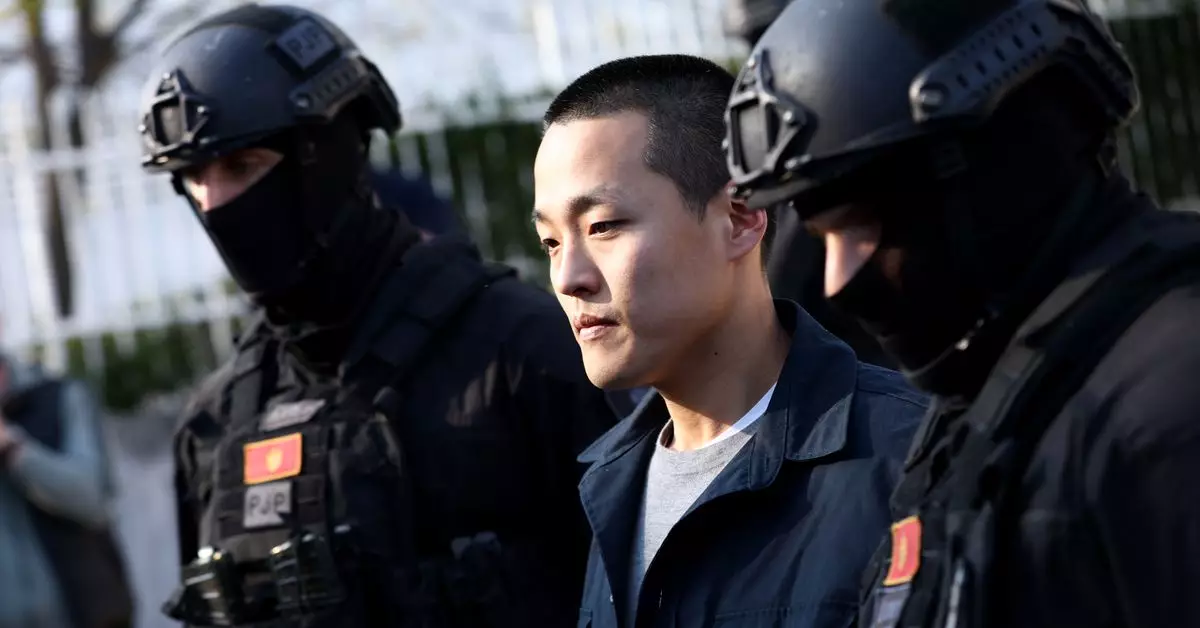The cryptocurrency landscape has often been characterized by volatile booms and dramatic busts, and few events have encapsulated this tumultuous nature as vividly as the collapse of Terraform Labs. Co-founded by Do Kwon, the firm witnessed the catastrophic collapse of its cryptocurrency tokens—TerraUSD and Luna—in 2022. This event not only obliterated investor confidence but also wiped out approximately $40 billion in market value, prompting investigations and legal actions around the globe. The fallout led to widespread calls for accountability in an industry that often operates in the shadows, leading us to question the regulatory frameworks that govern digital assets.
The recent extradition decision by the Montenegro Ministry of Justice marks a pivotal moment in the ongoing saga surrounding Kwon. Arrested in Montenegro over a year ago, Kwon is now set to face a litany of federal fraud charges in the United States. Both South Korea and the U.S. sought Kwon’s extradition, reflecting the international dimensions of his alleged financial misconduct. However, the ambiguity regarding the timeline of his transfer highlights a continued complexity in international law. Montenegro’s statements suggest that U.S. authorities have a strong case, but they have left questions regarding Kwon’s potential extradition to South Korea unanswered, adding layers of intrigue to a case already steeped in controversy.
Beyond Kwon’s individual case lies a more profound commentary on the cryptocurrency market itself. The implosion of TerraUSD and Luna calls into question the adequacy of existing regulations within the cryptocurrency space. Critics argue that the absence of clear, structured oversight allows for the emergence of firms that operate without sufficient checks and balances, ultimately exposing investors to undue risk. The ramifications of Kwon’s actions are not just personal; they resonate throughout the market, highlighting the need for comprehensive regulatory measures that could help prevent similar incidents in the future.
Kwon’s extradition and potential trial could have far-reaching implications for the future landscape of cryptocurrency regulation. As federal authorities gear up to prosecute him on charges that include wire fraud and securities fraud, the outcome may set critical precedents. Consumer trust—already fragile following the collapse—hinges on the efficacy of such legal proceedings. Should Kwon be found guilty, it may signal to both investors and regulators that malfeasance will not go unpunished, thus reinforcing the need for greater regulatory oversight. Conversely, an acquittal could embolden those operating in the ambiguous gray areas of the digital asset space.
The impending legal battles faced by Do Kwon serve not only as a cautionary tale for investors but also as a crucial junction for the cryptocurrency industry at large. As we await the developments surrounding Kwon’s extradition and the unfolding of his case, one thing is clear: the story of Terraform Labs underscores the urgent need for a well-defined regulatory framework in the digital currency sector. Without accountability and regulation, the promise of cryptocurrency could dwindle into another cautionary chapter in the saga of financial innovation.

